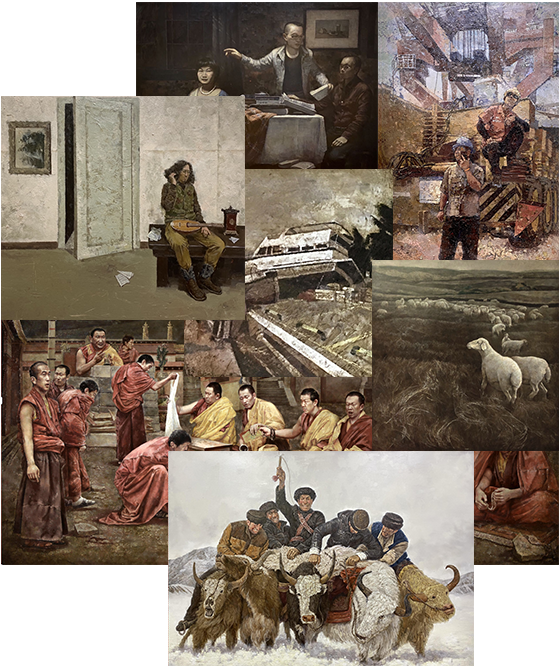No Products in the Cart




Zijing Wang, graduated from Macau Polytechnic University majoring in interdisciplinary art, is proficient in oil painting, drawing, sketching, and other artistic creations. He is a member of the Zhuhai Painting Academy and the Zhuhai Artists Association. He has participated in various competitions and exhibitions and won various awards since 2003. His creative philosophy is to explore the charm of life and art through profound observation and thinking of all things, so as to create more mature and excellent works.

The aim of this collaboration with Hazel Quinn is to promote traditional Chinese culture and to create a unique artwork inspired by Chinese dynasties, costumes, mascots, animals and architecture.

Peony Pavilion is a work that highlights China's Suzhou gardens and Suzhou-Hangzhou beauties, adopting a large number of Chinese painting techniques such as line, meaning, and aesthetics combined with Western classical oil paintings, and at the same time, referring to the expressive style of the painter Giuseppe Castiglione, who came to China from the West in Qing Dynasty.
The composition of the picture consists of nine Suzhou beauties in cheongsam, with different attitudes, some playing the zither, some playing the pipa, some playing the erhu, and some holding the fan, and behind them there are a large number of rocks and exquisite greenery forming a meaningful Suzhou garden, which is a concentrated expression of traditional Chinese culture.

Koi Frolic is expressed by adopting a surrealistic approach and, at the same time, utilizing the form of a collage, which makes the illustration style more intense.
The picture depicts different sizes of koi and six children riding on top of the koi, symbolizing the parents' expectation for their children to rise high in the world. The large number of koi is also meant to be a prayer for good luck. There are also a lot of auspicious clouds in the picture, which not only represent the traditional culture of auspiciousness but also the wish for the koi to soar to the sky.

The theme of Incomparable Beauties is the collision of ancient Chinese beauties and the traditional green landscape, which is expressed by combining the indirect technique of oil paintings and Chinese paintings.
These ancient beauties are chosen from the images of China's most representative dynasties, from Qin, Han, Tang, Song, Yuan, Ming, and Qing.The costumes, hair ornaments, make-up, and manners of the relevant eras are strictly adopted.The composition of the picture refers to the composition model of the ancient Chinese ladies'drawings such as Wise and Benevolent Women, and based on this, we make innovations and follow the aesthetics and cultural connotations of Chinese paintings under the expressive techniques of oil paintings.

Using a combination of realist oil painting and traditional folklore painting, A Majestic Gait depicts the dragon dance during traditional Chinese festivals such as the Spring Festival and Dragon Boat Festival.
The overall color palette is red and warm, highlighting the festivities. The technique of depicting the distant view is based on the blue-and-green landscape painting technique of A Thousand Li of Rivers and Mountains by Wang Ximeng, a gifted painter from the Hanlin Academy of the Song Dynasty. The picture innovatively uses a large number of two-dimensional auspicious clouds for overall coherence. Everything in the picture is smooth, natural, and painted in one go, and the energetic dragon dancers symbolize that life is like a beautiful picture of dragons marching on the river.